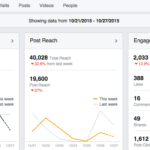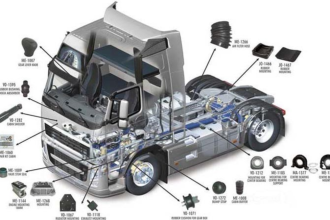This is a decision that you should never make in haste. The biggest reason is that the reputation of your company is going to be at stake here. The quality of the services that you are able to derive from your DOT compliance group or third-party administrator will dictate your ability to stay functional. This is the company or individual who will be responsible for keeping you compliant throughout the year. If they falter, your business is going to falter.
In this blog, we are going to discuss a few aspects and characteristics of a legit DOT compliance group that make it suitable for your company. You will be able to choose the most dependable and relevant third-party administrator after going through this piece of advice.
The Typical Definition Of A Third-Party Administrator Or Consortium
When it comes to choosing the right third-party administrator, you first must understand what it stands for. This is an entity that is going to help you conduct your drug and alcohol testing programs and will keep you updated on the various rules and requirements laid down by the US department of transportation and the federal motor carrier safety administration. In accordance with those rules, there will be certain filings and submissions that you will have to perform. These documents, inspections, file maintenance activities, and more are what keep you compliant throughout the year. This is exactly what a third-party administrator enables you to do or rather performs for you so that you can focus on your business activities without diluting your attention.
Now let’s talk about a few aspects that you should always keep in mind when choosing the most dependable DOT compliance service providers. If they are able to perform the following actions and services for your business, you should consider them seriously for the long-term association:
- A third-party administrator will be responsible for performing your drug and alcohol testing programs. They will also maintain testing records on your behalf.
- Most C/TPAs are responsible for managing DOT-related random testing and several compliance activities and services for multiple employers. You would know this when you will see a particular consortium working with several owner-operators simultaneously. Owner-operators are required to enroll in a consortium for their random drug and alcohol testing procedures.
- Several third-party administrators or rather almost all of them also engage with non-DOT employers. They perform non-DOT random testing programs for them. This is a common practice among associations of employers, unions, and other groups.
- DOT compliance groups and third-party facilitators are usually professional companies that have a lot of advanced knowledge and also expertise in all DOT-related requirements that you need to fulfill as an employer. They are also aware of the best practices that you must follow within your company to keep everyone safe and away from any kind of harm.
- Third-party administrators also prepare you for DOT audits which can be very surprising. There could be any factors that may trigger this DOT audit by the authorities. It can be a civilian complaint, a tiny violation, or even suspicious behavior on the part of any of your drivers on the highway.
They Also Have A Wide Network Of The Best Service Agents
These service agents are the ones that help you stay compliant throughout the year. They are the reason that you can sleep well at night knowing that your business is absolutely compliant and that everyone working in your company is safe and away from danger.
These service agents or entities are involved in providing you with various drug and alcohol testing services. These are vendors/companies that can help you implement the latest and most relevant DOT regulations at the workplace. These include:
· Urine Collector
· Laboratory
· Medical Review Officer (MRO)
· Screening Test Technician (STT)
· Breath Alcohol Technician (BAT)
· Substance Abuse Professional (SAP)
· Drug-Free Workplace Policy Consultant
Important Note: Do You Know That A Consortium/Third Party Administrator (C/TPA) Is Also Considered A Service Agent?
Yes. Your TPA coordinates drug and alcohol testing services for your company. As an employer, you would value these services a lot because they comprise:
- Random selections from a pool of employees and safety-sensitive position holders
- Preparation of annual Management Information System (MIS) reports
- Coordinating urine collections within your company
- Carrying out timely laboratory testing
- Conducting MRO services
- Carrying out alcohol testing
- Facilitating SAP evaluations
Before you settle on A C/TPA, you need to make sure that their services comply with DOT regulations to avoid DOT compliance scams. Also, ensure that their service agents are well-qualified and experienced.
Is There A Difference Between TPA And C/TPA?
Before you sign any agreement with a TPA, you must be aware of this little difference. TPA is a traditional name used for companies in the 1990s. The word ‘Consortium” was added by the US DOT in 2001. This happened when the rules for DOT drug testing were rewritten for more clarity. Over a period of time, the term evolved into “Consortium/Third Party Administrator” which became C/TPA. This terminology came into existence with the 2001 version of 49 CFR Part 40. You must have heard other players in your industry stressing to “look for a C/TPA with a status of Nationally Accredited for Administration of Drug and Alcohol Testing Programs (NAADATP).” This is how this term is used now. This accreditation is the most valued and preferred in the industry and is from the Drug & Alcohol Testing Industry Association (DATIA). A DOT compliance facilitator that has this accreditation is going to be a more reliable choice.
Importance of being a Nationally Accredited TPA
The Drug and Alcohol Testing Industry Association (DATIA) has a program and your TPA may choose to enroll in it to become nationally accredited. The goal of this program is very simple. It exists to provide a national standards benchmark for entities and TPA companies involved in the provision of drug-free workplace program management services to:
- All transport companies
- Players in the logistics industry
- The sectors that are governed by the USDOT and FMCSA
After getting accredited by this body, they are in a better position to uphold very specific standard operating procedures, a strong knowledge base, and highly professional practices to keep their clients in compliance with all the critical federal drug and alcohol testing regulations.
Conclusion
These are the criteria that you must be looking out for in the TPA you want to associate with. If the consortium doesn’t fulfill any of these, it is better to steer away from them and weigh other options. Stay aware, stay compliant.















